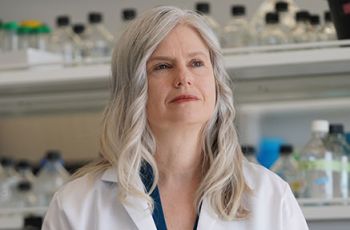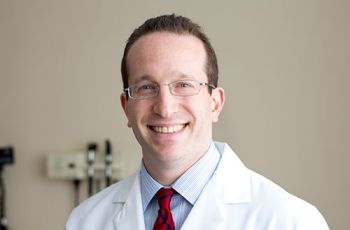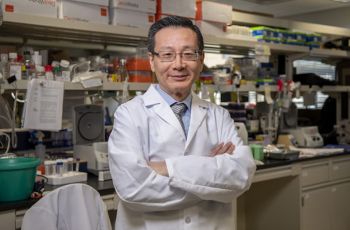Cancer
A new combination drug treatment showed promising results in patients with pan-refractory, recurrent/metastatic head and neck cancer, according to a study published today in the Journal of Clinical Oncology.
Cancer Genetic Counselor Sophia Griffith, MS, explains the importance of genetic testing and preventative screenings
“There have been several studies showing that an earlier diagnosis of breast cancer below the age of 50 can potentially increase the risk for melanoma — the most dangerous of all skin cancers — up to 40 to 50% compared to those without breast cancer,” said Dr. Adam Friedman, professor and chair of…
George Washington University researchers have identified a key molecule in certain kinds of breast cancers that prevent immune cells from entering tumors and killing the cancer cells inside. The paper and its findings, published today in Nature, could pave the way toward a new treatment for certain…
The key to unlocking a critical element of breast cancer treatment may lie with the work of Mei-Yi Wu, PhD, associate research professor in the Department of Anatomy and Cell Biology at the George Washington University School of Medicine and Health Sciences.
With a five-year, $2.17 million grant from the National Institutes of Health, Wenge Zhu, PhD, associate professor of biochemistry and molecular medicine at the George Washington University School of Medicine and Health Sciences, is aiming to help ovarian cancer patients overcome resistance to…
Adam Friedman, MD, director of the GW Supportive Oncodermatology Clinic and professor of dermatology, spoke to Sinclair Broadcast Group for a segment on treating the side effects of breast cancer treatment.
The George Washington University (GW) School of Medicine and Health Sciences (SMHS) was recently awarded its first-ever National Institutes of Health T-32 research training grant from the National Cancer Institute (NCI) in support of the GW Cancer Biology Training Program.
Rachel Brem, MD, professor of radiology, spoke with NBC4 for a segment on her experience testing positive for COVID-19 and recovery.
The combination of photothermal and epigenetic therapies may help to maximize the therapeutic benefits for melanoma, and possibly other tumors, according to researchers from the George Washington University School of Medicine and Health Sciences (SMHS).






